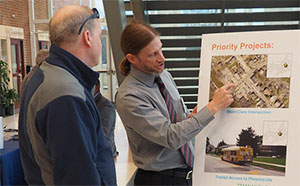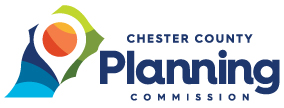Selecting a Planning Consultant
Posted March 21, 2022

Planning consultants bring a wide range of expertise to the table which can help guide and implement community planning programs, initiatives, and development projects. This guidance can include new ideas, objectivity, knowledge of current planning laws and practice, GIS mapping abilities, and public engagement techniques, among other skills. However, it's important to select a consultant that best suits the needs of your project and community.
Consultant selection should be a clear and transparent process, following a set of well thought out steps for identifying and selecting the right consultant. These steps include: 1) Defining needs and expectations; 2) Identifying prospective consultants; 3) Organizing for selection; 4) Establishing a budget and preparing a Request for Proposal (RFP); 5) Short listing, interviewing, and selecting; 6) Negotiating and executing a contract; 7) Managing the project; and 8) Confirming contact compliance and closing the project.
Other things to consider in the consultant selection process include minimum requirements (consultant's education and work/project experience) and whether the project is partially, or fully-grant funded. Communities and consultants alike should also be aware of the issue of "scope creep," which can occur when the original scope of work expands after a project is underway, making it difficult to complete the work within the original budget and timeframe.
A number of RFP examples can be viewed in the Consultant Selection eTool under Examples.
Through Chester County's Vision Partnership Program (VPP) Cash Grants, there are two competitive rounds per year (funding permitting) in which a municipality may hire a private consultant for planning projects. Through the VPP's County Consulting — Technical side, CCPC staff are available to act as the consultant for undertaking projects, with cost-sharing between the County and municipality. County Consulting — Technical projects are undertaken based on staff availability and the potential to implement Landscapes3.
CCPC's planning eTools are intended to be user-friendly, providing a quick overview of each topic, an explanation of how it works, and considerations for addressing the topic within a community. Topic categories include agriculture; community health; economic development; environment; historic preservation; housing; land use; open space; transportation; utilities, infrastructure & energy. The full list of eTools can be found in the Municipal Corner section of our website.

